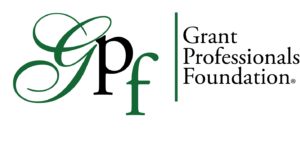GPA National Conference: A Grant Professional Pep Rally
Meghann Adams, Grants Specialist
Zoo Atlanta, Atlanta, Georgia
madams@zooatlanta.org
March, 2015
When I walked into my supervisor’s office for our check-in meeting the Monday after GPA’s 2014 National Conference in Portland, I actually had a smile on my face. The GPA conference schedule was packed, but I returned home feeling motivated and surprisingly refreshed, like I had hit a restart button somewhere in my brain. Never had I seen so many introverts (myself included) willingly together in one place, seemingly enjoying the opportunity to learn from others and share their own experiences. It was truly a grant professional pep rally!
Attending the GPA Annual Conference has enhanced my professional growth, and I believe it will also improve my performance as a grant developer in a number of ways. The conference featured an extensive selection of workshops covering a variety of topics that provided expert views and proven strategies for me to learn and apply to my own work. I attended discussions that focused on how to be successful in preparing specific aspects of a proposal, such as need statements, evidence-based outcomes, logic models and evaluation plans. There were also a few workshops I participated in that presented a broader, “big picture” view on subjects like grant seeking for arts and cultural organizations, grant development systems, program design and the GPC credential and exam.
One thing that surprised me is that I found the networking opportunities at the conference to be just as valuable to me as the workshops. It was clear that most of us are a “one-person show” and we wear multiple hats in our positions. Hearing about the strategies and resources that other grant professionals use to solve some of the same issues I face was very helpful to me. I especially enjoyed the special interest group session because the group discussed the distinctive opportunities and challenges that face our specific sector in the non-profit realm.
In addition to connecting with conference attendees who work for similar organizations, I was able to meet individuals from across the nation that I have worked with over the phone during the past year. I am a committee member on GPA’s Pioneer Award and Bylaw Committees, so it was a real pleasure to talk with some of the other committee members in person and to be able to spend some time to get to know them better. It was also very rewarding to be able to see the recipients of the Pioneer Awards receive their honors in person. Both of them gave very inspiring speeches, and I was pleased that the recognition was truly meaningful to them and their foundations.
The conference also gave me the opportunity to get to know a few GPCs and some members of the GPCI Board, which has motivated me to continue moving forward with submitting my eligibility packet and making the commitment to obtain my GPC credential within the next year. I would like to become certified to increase my credibility and show my employer that I am invested in my professional development and that I am in line with the professional standards within the grant development industry. It would be an honor to obtain this credential to support not only my own goals but also the standard of excellence for the grant profession.
As the Vice President of the Georgia GPA Chapter, I plan to share my experiences and promote the benefits of attending the National Conference during one of our upcoming chapter meetings. The conference also provided me with some ideas of presentation topics and guest speakers for our chapter’s monthly meetings. I think it is important to have a diverse line-up of speakers who appeal to grant writers from different backgrounds and experience levels. The Annual Conference workshops can also serve as a model for the Georgia Chapter as we seek guest presenters for our third Regional Conference this spring.
All of these experiences would not have been possible for me without the conference scholarship, which has proven to be an investment in my professional development. Once again, I would like to express my gratitude to the Grant Professionals Foundation and its donors for providing this opportunity for me to attend my first GPA National Conference. I am looking forward to attending next year’s conference in St. Louis, and I plan to get involved in the conference planning committee when my local chapter hosts the conference the following year in Atlanta.

